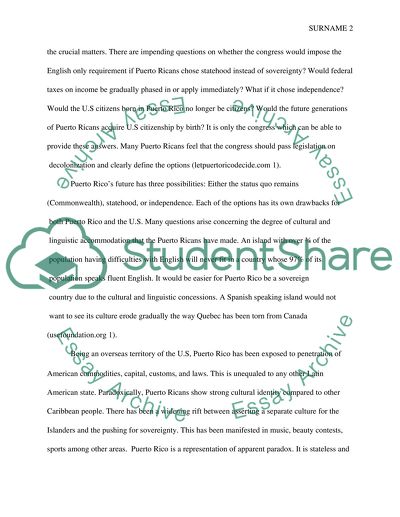Cite this document
(“What social, political, and economic reasons should Puerto Rico be an Term Paper”, n.d.)
Retrieved from https://studentshare.org/history/1448013-what-social-political-and-economic-reasons-should-puerto-rico-be-an-independent-nation
Retrieved from https://studentshare.org/history/1448013-what-social-political-and-economic-reasons-should-puerto-rico-be-an-independent-nation
(What Social, Political, and Economic Reasons Should Puerto Rico Be an Term Paper)
https://studentshare.org/history/1448013-what-social-political-and-economic-reasons-should-puerto-rico-be-an-independent-nation.
https://studentshare.org/history/1448013-what-social-political-and-economic-reasons-should-puerto-rico-be-an-independent-nation.
“What Social, Political, and Economic Reasons Should Puerto Rico Be an Term Paper”, n.d. https://studentshare.org/history/1448013-what-social-political-and-economic-reasons-should-puerto-rico-be-an-independent-nation.


